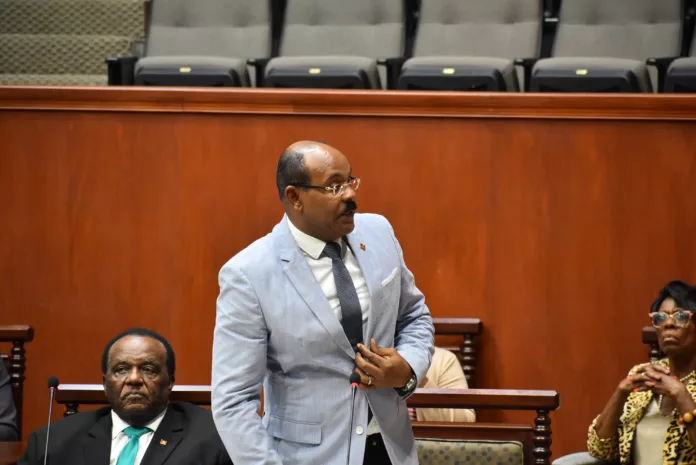

By Robert Andre Emmanuel
The House of Representatives on Tuesday approved a series of changes to how discretionary tax waivers will be handled by ministers moving forward via the Revenue Miscellaneous Provisions Bill.
The Bill was introduced by Prime Minister Gaston Browne, in his capacity as the country’s finance minister, who said that the Bill will close loopholes that allow the minister discretionary power to waive taxes.
Among some of the laws that will be affected by the Bill are the Environmental Protection Act, the Revenue Recovery Charge Act, the Tourism Guest Levy Act, preventing ministers from waiving taxes under those laws.
“It is part of our strategy to reduce the amount of discretionary exemptions to preserve the tax base,” the Prime Minister argued.
He, however, said that waivers will still be offered for custom duties, but they will be subject to an annual reporting to Parliament for waivers over EC$10,000.
Prime Minister Browne said that “at the end of the year, we will give an aggregate amount granted, and the individuals who would have benefited, and that will be filed with the Parliament and the Public Accounts Committee, allowing for greater tax transparency.”
However, St Phillip South MP Sherfield Bowen was quick to point out during his presentation that this amendment would not limit discretionary powers of ministers, but expand it.
Referencing the Section 71 of the 2013 Customs Control and Management Act, MP Bowen said that the Bill would remove the current requirement that waivers be tabled once granted before Parliament.
This is a provision of the law which no government, both ABLP and UPP, has adhered to.
“This requirement now is seeking to replace that weekly publication with a semi-annual report not including the name, not including the goods, not including the individual amounts, and so the power of the minister is enlarged, not restricted.
“And I’m saying, further, that when there is a requirement to publish the names, it is also a deterrent to the applicant knowing that their name is going to be published,” Bowen said.
He added that he did not agree with the removal of waivers for environmental levies, stating that waivers under $2,000 should be allowed.
“I would have constituents to whom it would be a great benefit to get $2,000 off rather than the whole thing,” he said.
The Bill now heads to the Senate for review and approval.
